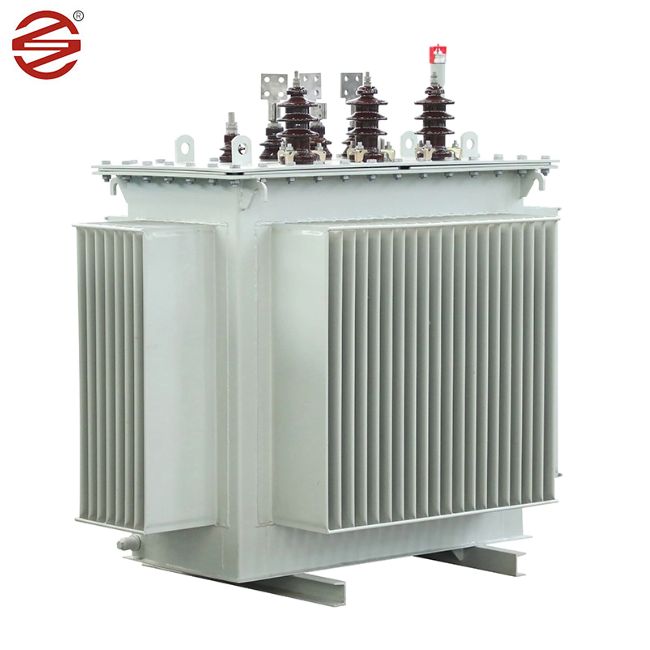
- English
- Español
- Português
- русский
- Français
- 日本語
- Deutsch
- tiếng Việt
- Italiano
- Nederlands
- ภาษาไทย
- Polski
- 한국어
- Svenska
- magyar
- Malay
- বাংলা ভাষার
- Dansk
- Suomi
- हिन्दी
- Pilipino
- Türkçe
- Gaeilge
- العربية
- Indonesia
- Norsk
- تمل
- český
- ελληνικά
- український
- Javanese
- فارسی
- தமிழ்
- తెలుగు
- नेपाली
- Burmese
- български
- ລາວ
- Latine
- Қазақша
- Euskal
- Azərbaycan
- Slovenský jazyk
- Македонски
- Lietuvos
- Eesti Keel
- Română
- Slovenski
- मराठी
- Srpski језик
Why Is the Oil-Immersed Distribution Transformer the Key to Reliable Power Distribution?
2025-10-24
In today's energy-driven world, maintaining reliable and efficient power distribution is essential for both urban and rural development. Among various transformer types, the Oil-Immersed Distribution Transformer stands out for its superior insulation performance, stable operation, and long service life. As a professional manufacturer, Zhejiang Dahu Electric Co., Ltd. has been dedicated to producing high-quality oil-immersed transformers that meet global standards and customer requirements. In this article, I will explore the function, efficiency, and importance of this product, while answering some of the most common questions customers often ask.
What Is an Oil-Immersed Distribution Transformer?
The Oil-Immersed Distribution Transformer is a type of electrical transformer where the core and windings are immersed in insulating oil. The oil serves two primary purposes — insulation and cooling. It helps prevent electrical breakdowns and transfers heat away from the windings, ensuring stable performance under heavy load conditions.
These transformers are widely used in power distribution systems for industrial, commercial, and residential applications. They are available in various voltage levels and configurations to suit diverse power network requirements.
Main Features and Parameters
The Oil-Immersed Distribution Transformer designed by Zhejiang Dahu Electric Co., Ltd. follows advanced manufacturing processes, ensuring high mechanical strength and superior insulation. Below is a simple table of the standard parameters for reference:
| Parameter | Specification |
|---|---|
| Rated Capacity | 30 kVA – 2500 kVA |
| Rated Voltage | 6 kV / 10 kV / 11 kV / 20 kV / 35 kV |
| Frequency | 50Hz / 60Hz |
| Cooling Method | ONAN (Oil Natural Air Natural) / ONAF (Oil Natural Air Forced) |
| Insulation Level | LI75 AC35 – LI170 AC70 |
| Temperature Rise | ≤ 65°C |
| Tap Changer | Off-circuit or On-load tap changer |
| Standard | IEC60076 / GB1094 / ANSI |
What Is the Function of an Oil-Immersed Distribution Transformer?
The main function of an Oil-Immersed Distribution Transformer is to step down the voltage from transmission levels to distribution levels suitable for end-users. By doing so, it ensures safe and efficient electricity delivery to factories, buildings, and households.
Key roles include:
-
Voltage Regulation: Converts high-voltage electricity into a safe, usable voltage.
-
Power Stability: Reduces energy loss during transmission and improves efficiency.
-
System Protection: Ensures reliable insulation between high and low voltage circuits.
How Effective Is the Oil-Immersed Distribution Transformer in Real Applications?
The performance of oil-immersed transformers is exceptional when it comes to thermal management and load capacity. Thanks to the cooling oil, these units maintain stable operation even under fluctuating power demands.
Effectiveness highlights:
-
Excellent thermal performance ensures long-term stability.
-
High overload capacity allows flexible operation in demanding environments.
-
Noise reduction design creates a more silent and efficient power distribution network.
I've personally observed that users appreciate how these transformers perform consistently even in high-temperature or high-humidity environments, which is why I recommend them for both urban grids and renewable energy applications.
Why Is the Oil-Immersed Distribution Transformer So Important?
The Oil-Immersed Distribution Transformer plays a critical role in the reliability of modern power systems. Without it, voltage fluctuations, energy losses, and system instability could cause frequent power interruptions.
Importance Overview
-
Efficiency: Minimizes power loss through superior oil cooling.
-
Durability: Long service life due to robust insulation and mechanical strength.
-
Safety: The oil layer effectively isolates electrical components from moisture and contaminants.
-
Adaptability: Suitable for industrial, agricultural, and residential power distribution networks.
At Zhejiang Dahu Electric Co., Ltd., we understand the importance of delivering dependable solutions. That's why we focus on quality control, advanced technology, and precision engineering in every product.
Common Questions About Oil-Immersed Distribution Transformer
Q1: What makes the Oil-Immersed Distribution Transformer different from dry-type transformers?
A1: The oil-immersed type uses insulating oil for both cooling and insulation, allowing better heat dissipation and higher overload capacity. Dry-type transformers, on the other hand, rely on air cooling and are better suited for indoor applications.
Q2: How often should I maintain my Oil-Immersed Distribution Transformer?
A2: Regular inspection every 6 to 12 months is recommended. This includes checking oil levels, testing dielectric strength, and monitoring temperature rise. Proper maintenance ensures long service life and reliable performance.
Q3: Why should I choose Zhejiang Dahu Electric Co., Ltd. for Oil-Immersed Distribution Transformers?
A3: Because we combine technical expertise with strict quality control. Our products meet international standards like IEC, ANSI, and GB, ensuring reliability, safety, and efficiency. Moreover, we provide customized solutions to match specific project requirements.
The Role and Future of Oil-Immersed Distribution Transformers
Looking ahead, the role of Oil-Immersed Distribution Transformers will remain vital as global energy demand continues to grow. Their ability to ensure stable power delivery while reducing energy loss makes them indispensable in modern grids, renewable energy systems, and industrial networks.
As an engineer, I've witnessed how adopting advanced transformer technology significantly improves power reliability, minimizes operational costs, and supports sustainable energy development. The oil-immersed design continues to evolve with innovations in eco-friendly insulating materials and digital monitoring systems, promising an even more efficient future.
Conclusion
The Oil-Immersed Distribution Transformer is not just a device — it is the heart of efficient energy distribution. With outstanding cooling performance, long-term reliability, and proven safety, it supports industries, cities, and communities worldwide. At Zhejiang Dahu Electric Co., Ltd., we are proud to provide premium transformers designed for durability, precision, and performance.
If you are looking for high-quality, customizable transformer solutions for your project, contact us today — our engineering team will help you find the perfect fit for your power distribution needs.




